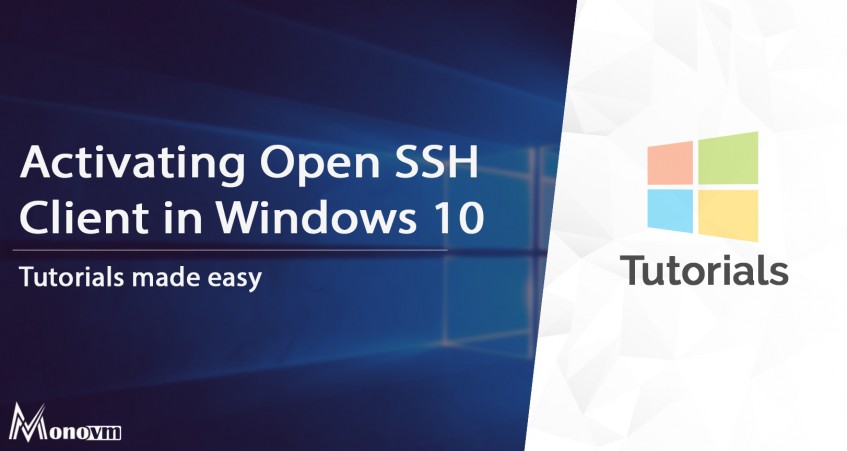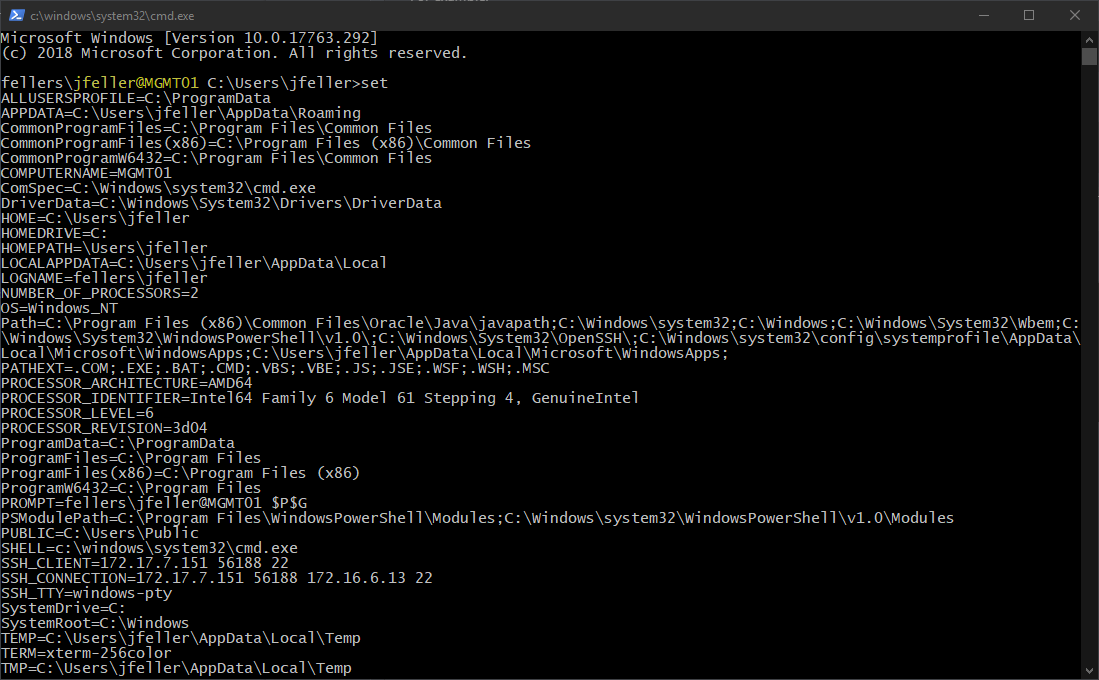ssh-agent is a program to hold private keys used for public key authentication. Through use of environment variables the agent can be located and automatically used for authentication when logging in to other machines using ssh(1).
Posts about openssh written by realitman. OpenSSH secure file copy. Examples (TL;DR). Can be used to pass options to ssh in the format used in sshconfig(5). This is useful for specifying options for which there is no separate scp command-line flag. For full details of the options listed below.
The options are as follows:
-abind_address- Bind the agent to the UNIX-domain socket bind_address. The default is $TMPDIR/ssh-XXXXXXXXXX/agent.<ppid>.
-c- Generate C-shell commands on
stdout. This is the default ifSHELLlooks like it's a csh style of shell. -D- Foreground mode. When this option is specified
ssh-agentwill not fork. -d- Debug mode. When this option is specified
ssh-agentwill not fork and will write debug information to standard error. -Efingerprint_hash- Specifies the hash algorithm used when displaying key fingerprints. Valid options are: “md5” and “sha256”. The default is “sha256”.
-k- Kill the current agent (given by the
SSH_AGENT_PIDenvironment variable). -Pallowed_providers- Specify a pattern-list of acceptable paths for PKCS#11 provider and FIDO authenticator middleware shared libraries that may be used with the
-Sor-soptions to ssh-add(1). Libraries that do not match the pattern list will be refused. See PATTERNS in ssh_config(5) for a description of pattern-list syntax. The default list is “/usr/lib/*,/usr/local/lib/*”. -s- Generate Bourne shell commands on
stdout. This is the default ifSHELLdoes not look like it's a csh style of shell. -tlife- Set a default value for the maximum lifetime of identities added to the agent. The lifetime may be specified in seconds or in a time format specified in sshd_config(5). A lifetime specified for an identity with ssh-add(1) overrides this value. Without this option the default maximum lifetime is forever.
- command [arg ..]
- If a command (and optional arguments) is given, this is executed as a subprocess of the agent. The agent exits automatically when the command given on the command line terminates.

There are two main ways to get an agent set up. Desenvolvido para positivo driver download. The first is at the start of an X session, where all other windows or programs are started as children of the ssh-agent program. The agent starts a command under which its environment variables are exported, for example ssh-agent xterm &. When the command terminates, so does the agent.
The second method is used for a login session. When ssh-agent is started, it prints the shell commands required to set its environment variables, which in turn can be evaluated in the calling shell, for example eval `ssh-agent -s`.
In both cases, ssh(1) looks at these environment variables and uses them to establish a connection to the agent.

The agent initially does not have any private keys. Keys are added using ssh-add(1) or by ssh(1) when AddKeysToAgent is set in ssh_config(5). Multiple identities may be stored in ssh-agent concurrently and ssh(1) will automatically use them if present. ssh-add(1) is also used to remove keys from ssh-agent and to query the keys that are held in one.
Ssh Manual

Connections to ssh-agent may be forwarded from further remote hosts using the -A option to ssh(1) (but see the caveats documented therein), avoiding the need for authentication data to be stored on other machines. Authentication passphrases and private keys never go over the network: the connection to the agent is forwarded over SSH remote connections and the result is returned to the requester, allowing the user access to their identities anywhere in the network in a secure fashion.
Contents

Openssh Man Page
Manjaro Openssh Client
Short Descriptions
Man Sshd

scp | is a file copy program that acts like rcp except it uses an encrypted protocol |
sftp | is an FTP-like program that works over the SSH1 and SSH2 protocols |
ssh | is an rlogin/rsh-like client program except it uses an encrypted protocol |
sshd | is a daemon that listens for ssh login requests |
ssh-add | is a tool which adds keys to the ssh-agent |
ssh-agent | is an authentication agent that can store private keys |
ssh-copy-id | is a script that enables logins on remote machines using local keys |
ssh-keygen | is a key generation tool |
ssh-keyscan | is a utility for gathering public host keys from a number of hosts |
